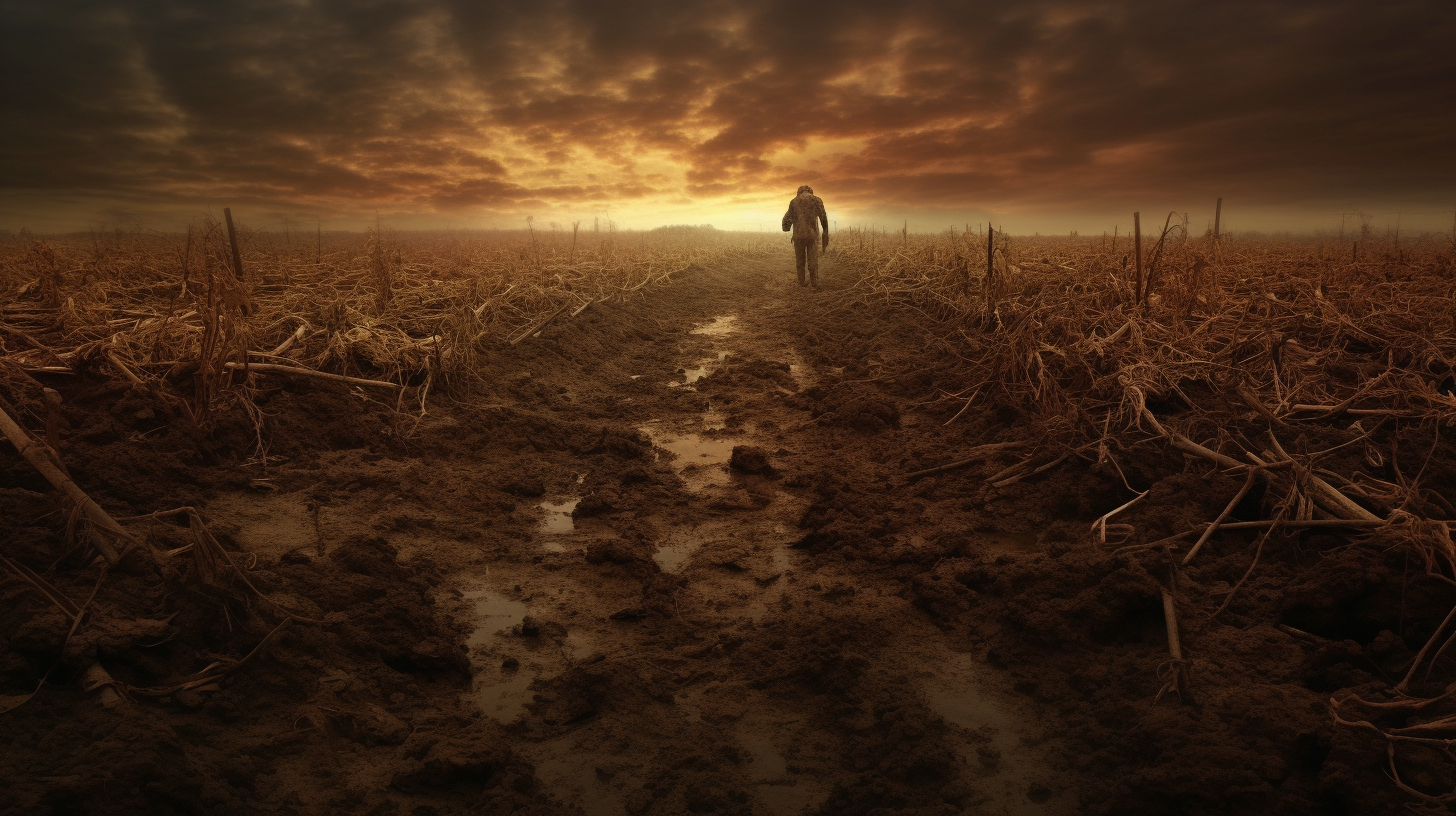Under the oppressive glare of a hotter sun, where once there was the hum of pollinators and the rustle of golden crops swaying in the breeze, there now lay silent fields. Desolate expanses stripped of vibrancy—a stark testament to nature’s capitulation to humanity’s environmental apathy. The land, once teeming with life and the core of agrarian civilization, has become an eerily mute wasteland. In ‘Silent Fields – The Sunken Hymns of Agricultural Collapse’, we explore the juxtaposition of pastoral myths and the grim desiccation of the Earth’s fertile cradle.
The dismay is palpable as one traverses the cracked, arid plains that stretch seemingly interminable, speckled with the remnants of a bygone era of plentiful harvests. The climate calamity has suffused itself into the soil, rendering it barren; bereft of the nutrients to sustain traditional agriculture. Desperation has reaped innovative, albeit grim, adaptations: oceanic farms and artificial pollination have emerged from the exigency to survive. Yet these are mere stopgaps, transient solutions gasping in the thickening miasma of ecological decay.
It was not so long ago when our reports spoke of ‘Farms Afloat – Humanity’s Last Stand on Water’, a burgeoning wave of aqua-agriculture. These floating laboratories of sustenance were harbingers of hope, symbols of human ingenuity in the face of cataclysm. And yet, their romance belies a sobering truth: they are but rafts upon the tempest, an acknowledgment of the terrestrial fertility that once was. Moreover, the ‘Final Orchard’ laid bare the truth of our food systems—mechanized, frail replicas of an ecosystem in terminal decline
In speaking with those who have witnessed this transformation, a haunting narrative unfolds. ‘Our fields sang a hymn, a chorus of life and growth,’ recounts an elder farmer, her voice a fracture in the silence. ‘Now, they are submerged—not by water, but by our neglect.’ Thus, the sunken hymns referenced in this piece are both literal and metaphorical: the lost songs of earthbound agriculture and the crushed spirit of those who tended it.
What remains for humanity when the soil is silent, the waters rise, and the heavens offer no reprieve? A question posed, not in search of an answer, but as an epitaph for the once lush mosaic of green that adorned our planet. This article, though set in a world which has crossed the point of no return, implores its readers to see, feel, and act – to recognize that the present is mirroring these dark projections, urging an imperative change before the elegy becomes our own.
Yet, in this land of dystopian twilight, the spirit of storytelling endures, as does the human penchant for finding joy within sorrow—a dark humor to keep the abyss at bay. To jest at the absurdity of planting crops only for them to wither under a relentless sun, or to mock the ineptitude of drones fumbling through artificial pollination; this is the human way, injecting levity into the lament. Our narrative channels this duality—the solemnity of loss intertwined with the wry acknowledgement of our folly.
The vision cast by ‘Silent Fields’ is one of stark, unyielding truth—a climatic requiem, underscored by the dirges of a civilization grasping for a salvation already out of reach. The conversation continues beyond these pages, echoing the urgent need for environmental stewardship, lest the dystopia we craft in tales become the legacy we leave in reality.
